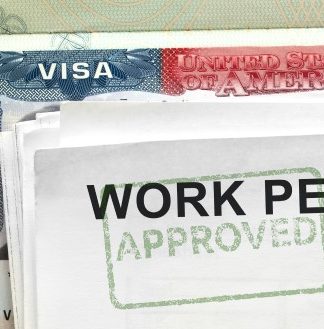Punjab: The Indian ‘American dream’ which ended in a scam in Bali
Published
1 hour ago
Share
Sukhjinder
Image caption,
Sukhjinder is among hundreds of Indians who were duped by a gang of smugglers
By Sarbjit Dhaliwal
BBC Punjabi
Like millions of others in India, Sukhjinder always dreamt of migrating to the US in search of a better life.
Now he shudders at the very idea.
“I have chills down my spine when I hear someone talk about going abroad. That one decision ruined everything for me,” said the 35-year-old, who goes by only one name.
A resident of Tarn Taran, a small town in Punjab, Mr Sukhjinder is among at least 150 young men and women in the northern Indian state who were duped by a gang which extorted huge sums of money in exchange for false promises of getting them settled in the US.
Police said the gang, which is entirely made up of Indians, would fly out its victims to new destinations such as Bali in Indonesia and hold them hostage for days to extract a ransom from their families.
They said they suspected the gang chose countries like Indonesia or Singapore as their base because of cheap flights and the “visa on arrival” facility available to Indian citizens in these countries. Besides Punjab, men in three other states – Haryana, Uttarakhand and Himachal Pradesh – were also targeted, they added.
Last year, police said they had arrested “the gang leader” Sunny Kumar’s wife and his father and recovered 15m rupees ($1.82m; £1.47m) from their home in Punjab. So far, 11 people have been arrested in connection with the scam, they added.
But Kumar and other gang leaders are still absconding, believed to be hiding in Indonesia. Police say they are in touch with the Indian federal government to get their whereabouts. Those under arrest have not made any statements. The BBC has contacted the Indonesian police for comment and the story will be updated when they respond.
The gang, which has been active for over two years, mostly targeted young, but not very educated, people in Punjab.
“The members approached their victims with the promise of taking them to the US via Mexico,” Gursher Singh Sandhu, police commissioner of Mohali city, told the BBC.
“They would fly their clients out of the country and then force them to call their family and lie that they had reached safely, and ask their family to pay the gang’s fee,” he said.
Some members of the gang, based in Punjab, would then go and collect the money from the victims’ families. After that, the gang would either abandon the victims or put them on a return flight to India, Mr Sandhu added.
Punjab police with the money seized from a gang member’s home in Punjab
Image caption,
Police say they have arrested the main accused’s wife and his father
Mr Sukhjinder said he first got in touch with Sunny Kumar in October after a relative told him he could help him reach US.
Kumar told Mr Sukhjinder he would get him there if he paid 4.5m rupees. The plan was that Mr Sukhjinder would first travel to Bali, from where Kumar and his men would chart a route for him to get to Mexico and then to the US. Mr Sukhjinder said he trusted the offer because Kumar sent him a ticket to Bali without him making any advance payment.
On October 29, he boarded a flight for Bali from Delhi. From here on, things took a sinister turn.
Mr Sukhjinder alleged he was held hostage at an unknown location for 23 days. “I was beaten so severely that I had no option but to agree to lie to my family.”
He said he was allowed to take a flight back to India after his family paid 4m rupees to the agents.
This is not the first time Indians have taken desperate steps to migrate to the US.
Thousands of Indians dream of moving to foreign countries, especially the US, in the hope of a better life. Some even fall victim to human smugglers in their desire to reach their goal.
US government data shows that 19,883 Indians were arrested while entering the country illegally in 2020. The numbers went up to 30,662 in 2021 and to 63,927 in 2022.
Representative image
IMAGE SOURCE,GETTY IMAGES
Image caption,
The gang would send its victims air tickets to Bali and take them hostage on arrival
Experts say while a lot of families try to cross over from Canada, many end up going to Mexico, where they get in touch with smugglers who push them to undertake treacherous journeys across the border. Many die along the way.
Last week, four-members of an Indian family were found dead in a river marsh near the US-Canada border. In January 2022, bodies of another family of four were found frozen to death near the border. In 2019, the death of a six-year-old girl from Punjab, who had illegally entered US from Mexico with her mother, had caused widespread outrage in India.
Ranjit Singh Ghuman, an economist from Punjab, says the situation is particularly alarming because of the lack of jobs in the state. Data from India’s Economic Survey shows that the rate of unemployment stood at 7.2% in 2021 and 2022.
“The youth here are frustrated and desperately want a way out from their dismal lives. So they take such extreme decisions,” he said, adding that the government should increase investments to spur more jobs.
Vishal Kumar, another victim of the gang, agreed – he said it was desperation that pushed him to take the step.
After passing 10th grade, Mr Kumar had to drop out from school. He said he had been looking for jobs since.
“When I heard about this gang, I thought I would be able to escape this life and build something from scratch in a different country. But eventually I had to pay money to save my own life,” he said.
The Punjab government has introduced new laws to prevent illegal trafficking and launched a crackdown on fake travel agencies operating in the state.
In February, authorities in Jalandhar district cancelled licences of thousands of immigration consultants, international ticket booking agents and owners of English tuition centres on charges of fraud.
But Mr Ghuman says that despite tough laws, fake agents continue to operate unhindered in the state. “Legal processes are often long and complex, while the victims are mostly small farmers with little education,” he said.
Back in Tarn Taran, Mr Sukhjinder worries about his future.
“I sold my farmland and borrowed money to go to the US. Now the creditor is demanding his money back and I don’t know what to do,” he said.
BBC News India is now on YouTube. Click here to subscribe and watch our documentaries, explainers and features.






























